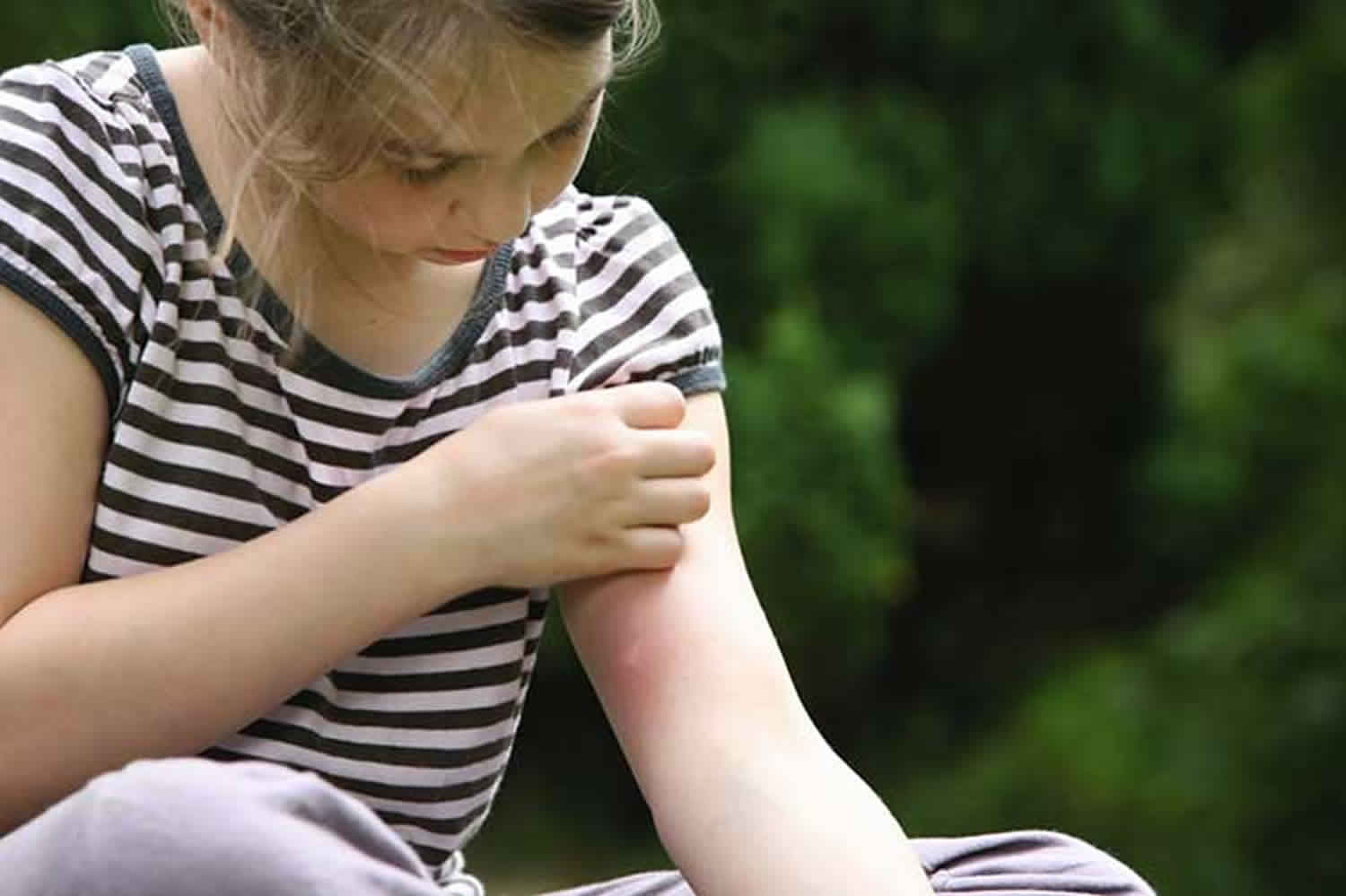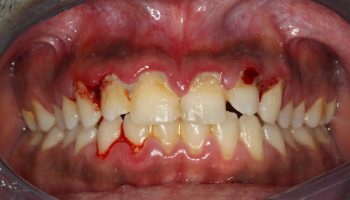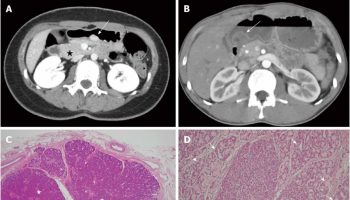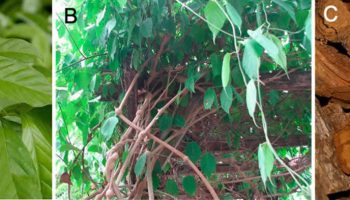Skeeter syndrome
Skeeter syndrome is defined as a large local inflammatory reaction induced by mosquito bites associated with systemic symptoms (fever and vomiting) with specific IgE for mosquito identified by skin testing 1. Skeeter syndrome is actually the result of an allergic reaction to proteins in mosquito saliva. Skeeter syndrome can develop in young or immunocompromised patients. The characteristic of Skeeter syndrome is the development of fever and large areas of erythema hours after the mosquito bite. The red, itchy, painful swelling referred to as Skeeter syndrome is sometimes mistaken for a secondary bacterial infection brought on by scratching and broken skin 2.
There’s no simple blood test to detect mosquito antibodies in blood, so mosquito allergy is diagnosed by determining whether the large, red areas of swelling and itching occurred after you were bitten by mosquitoes.
The primary management of Skeeter syndrome is prevention of mosquito bites, the use of insect repellents and protective clothing. It is also important the symptomatic management control of pruritus with the use of antihistamines or if necessary topical steroids. Overall children with Skeeter syndrome remain healthy, except for the recurrence of large local reactions to mosquito stings.
The early recognition of Skeeter syndrome is important to give the right management and to prevent unnecessary diagnostic tests and treatments that can increase the risk of adverse reactions and costs.
How to protect yourself and your family from mosquito bites
Use Insect Repellent
Use Environmental Protection Agency (EPA)-registered insect repellentsexternal icon with one of the active ingredients below. When used as directed, EPA-registered insect repellents are proven safe and effective, even for pregnant and breastfeeding women.
- DEET
- Picaridin (known as KBR 3023 and icaridin outside the US)
- IR3535
- Oil of lemon eucalyptus (OLE)
- Para-menthane-diol (PMD)
- 2-undecanone
Find the right insect repellent for you by using EPA’s search tool (https://www.epa.gov/insect-repellents/find-repellent-right-you).
Tips for babies and children
- Dress your child in clothing that covers arms and legs.
- Cover strollers and baby carriers with mosquito netting.
- When using insect repellent on your child:
- Always follow label instructions.
- Do not use products containing oil of lemon eucalyptus (OLE) or para-menthane-diol (PMD) on children under 3 years old.
- Do not apply insect repellent to a child’s hands, eyes, mouth, cuts, or irritated skin.
- Adults: Spray insect repellent onto your hands and then apply to a child’s face.
Tips for everyone
- Always follow the product label instructions.
- Reapply insect repellent as directed.
- Do not spray repellent on the skin under clothing.
- If you are also using sunscreen, apply sunscreen first and insect repellent second.
Wear long-sleeved shirts and long pants
Treat clothing and gear
- Use permethrin to treat clothing and gear (such as boots, pants, socks, and tents) or buy permethrin-treated clothing and gear.
- Permethrin is an insecticide that kills or repels mosquitoes.
- Permethrin-treated clothing provides protection after multiple washings.
- Read product information to find out how long the protection will last.
If treating items yourself, follow the product instructions.
DO NOT use permethrin products directly on skin.
Take steps to control mosquitoes indoors and outdoors
- Use screens on windows and doors. Repair holes in screens to keep mosquitoes outdoors.
- Use air conditioning, if available.
- Stop mosquitoes from laying eggs in or near water.
- Once a week, empty and scrub, turn over, cover, or throw out items that hold water, such as tires, buckets, planters, toys, pools, birdbaths, flowerpots, or trash containers.
- Check indoors and outdoors.
Prevent mosquito bites when traveling overseas
- Choose a hotel or lodging with air conditioning or screens on windows and doors.
- Sleep under a mosquito bed net if you are outside or in a room that does not have screens.
- Buy a bed net at your local outdoor store or online before traveling overseas.
- Choose a WHOPES-approved bed net: compact, white, rectangular, with 156 holes per square inch, and long enough to tuck under the mattress.
- Permethrin-treated bed nets provide more protection than untreated nets.
- Do not wash bed nets or expose them to sunlight. This will break down the insecticide more quickly.
- For more information on bed nets, visit CDC’s page on insecticide-treated bed nets (https://www.cdc.gov/malaria/malaria_worldwide/reduction/itn.html).
- For more information on traveling overseas, visit Travelers’ Health (https://wwwnc.cdc.gov/travel/).
Skeeter syndrome symptoms
Skeeter Syndrome is a relatively rare inflammatory reaction to mosquito bites. Symptoms include a large area of swelling, heat, redness, and itching/pain which mimics an infectious process. This inflammatory reaction may develop in susceptible individuals within hours after a mosquito bite.
Skeeter syndrome treatment
Most mosquito bites stop itching and heal on their own in a few days. These self-care tips may make you more comfortable.
- Apply a lotion, cream or paste. Putting calamine lotion or nonprescription hydrocortisone cream on the bite can help ease the itch. Or try dabbing the bite with a paste made of baking soda and water. Reapply several times daily until your symptoms go away.
- Apply a cool compress. Try soothing the bite by applying a cold pack or a cool, moist cloth for a few minutes.
- Take an oral antihistamine. For stronger reactions, try taking a nonprescription antihistamine (Benadryl, Chlor-Trimeton, others).
There have been a few small volunteer trials on medications to relieve the symptoms of mosquito bites. Today it is suggested that cetirizine (10 mg by mouth) can reduce itching and swelling as a result of mosquito bites 3. In the only pediatric-focused study, 0.3mg/kg of loratadine was also found to be effective. In some studies, starting medications prophylactically before exposure can prevent symptoms 4.
There is a need for more clinical trials to explore the efficacy of topical glucocorticoids and leukotriene receptor antagonists. In other insect bites, topical glucocorticoids have demonstrated effectiveness and thus have recommendations for use for more severe mosquito bites. In severe and substantial reactions it may be prudent to start oral glucocorticoids, as one would with other urticarias.
References- Garcia-Calderin D, González-Díaz S, Arias-Cruz A, et al. 465 Skeeter Syndrome, a Case Report and Literature Review. World Allergy Organ J. 2012;5(Suppl 2):S165. Published 2012 Feb 17. doi:10.1097/01.WOX.0000411580.26669.9e https://www.ncbi.nlm.nih.gov/pmc/articles/PMC3512901
- Simons FE, Peng Z. Skeeter syndrome. J. Allergy Clin. Immunol. 1999 Sep;104(3 Pt 1):705-7.
- Seda J, Horrall S. Mosquito Bites. [Updated 2019 Nov 22]. In: StatPearls [Internet]. Treasure Island (FL): StatPearls Publishing; 2019 Jan-. Available from: https://www.ncbi.nlm.nih.gov/books/NBK539915
- Foëx BA, Lee C. Towards evidence based emergency medicine: best BETs from the Manchester Royal Infirmary. Oral antihistamines for insect bites. Emerg Med J. 2006 Sep;23(9):721-2.





